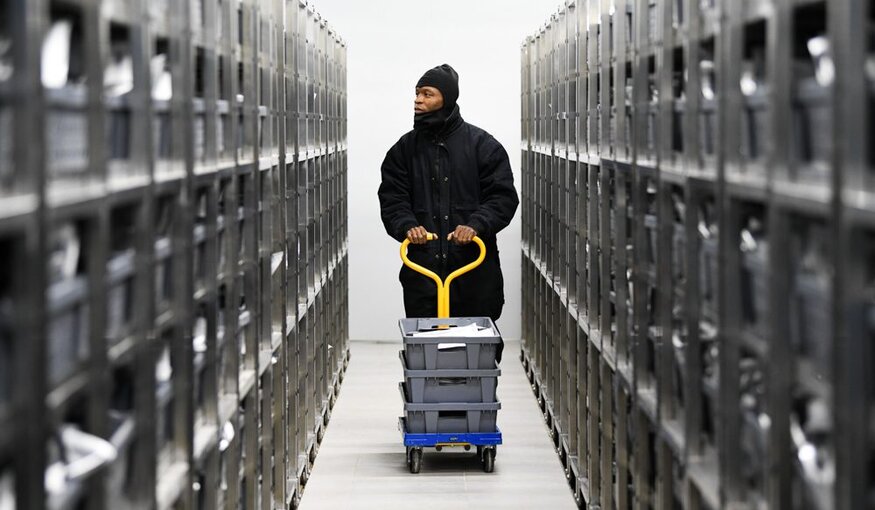Devex: How Genebanks Act as Guardians Against Climate Uncertainty

A genebank worker wheels seeds through the AfricaRice genebank in Côte d’Ivoire, where the largest collection of African rice varieties in the world is safeguarded. Photo: Neil Palmer/Crop Trust
11 June 2024
Biodiversity loss, climate change, and food insecurity are daunting, interconnected challenges that can seem insurmountable. As record-breaking temperatures persist and climate change escalates, the myriad solutions proposed often appear overly complex and expensive. Yet there is a deceptively simple but powerful solution that addresses all these problems: seeds.
Seeds contain the genes that make wheat different from mango, wild potatoes different from cultivated ones, and plum-shaped San Marzano tomatoes different from beefsteak-shaped Brandywine. They encapsulate crop diversity.
With an eye to the future, we can use crop diversity to adapt agriculture to meet the challenges of the climate crisis and prevent a doomsday future. Crop diversity provides a menu of options, allowing farmers to switch to more drought-resistant crops, to feed cows fodder that causes them to emit less methane, and adopt more sustainable practices. It allows plant breeders to come up with modern varieties, and researchers to study how they work.
Categories: For The Press, For Partners, Crop Trust in the News, BOLD, Climate Change


